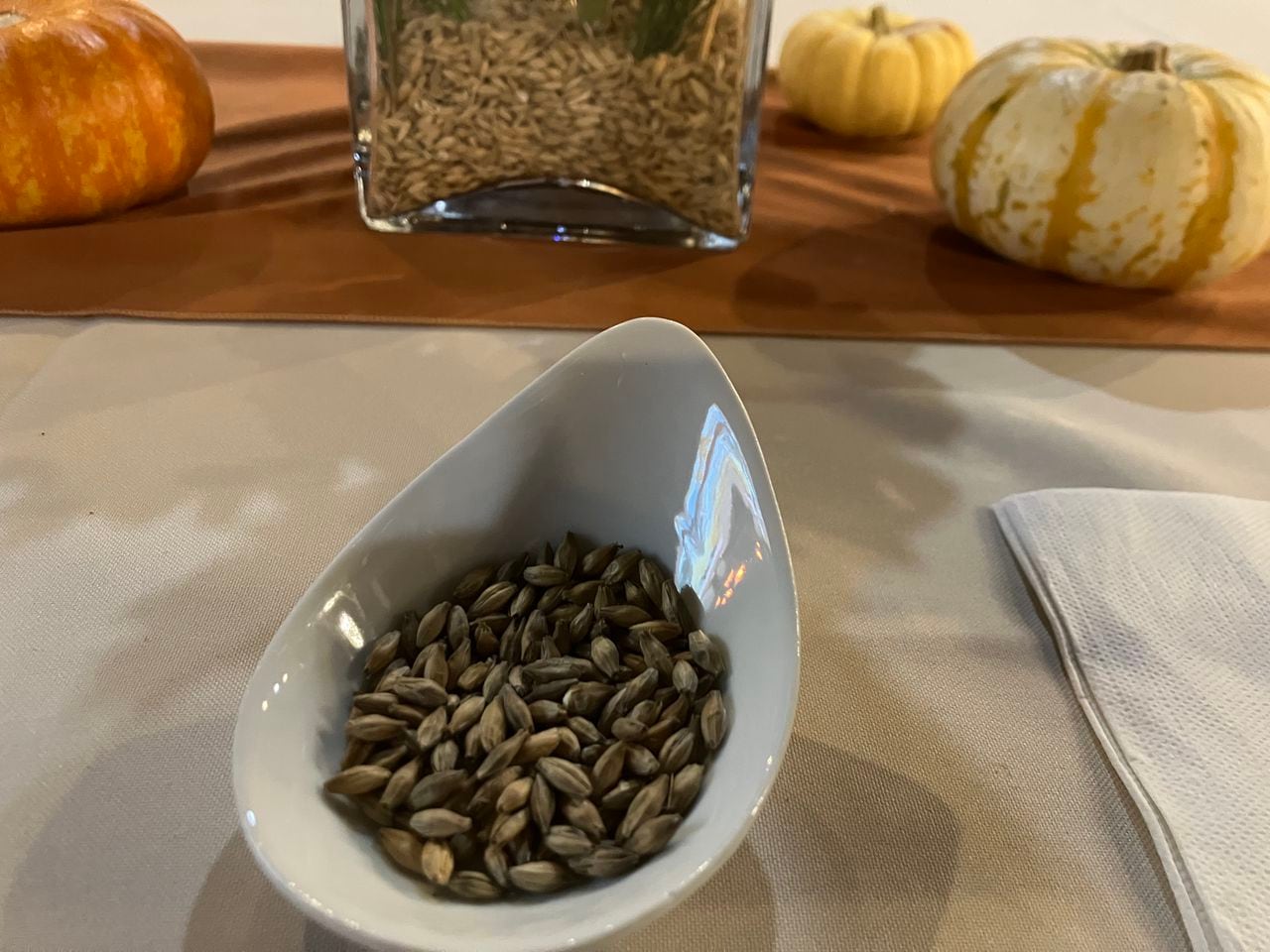On tap: Alabama farmers eye new future growing barley crops for craft beer
A small group gathered in Huntsville Tuesday night to sample and celebrate “Avalon Zwickelbier,” a new craft beer made with a new strain of Alabama barley identified by Alabama scientists, grown by Alabama farmers and brewed by an Alabama brewery.
The verdict? Good beer. Even better was evidence Alabama is becoming “a state that has its mind open to trying something different,” Huntsville plant geneticist Alex Harkess said.
Craft beer is big business in America. More than 9,500 breweries were operating in 2022, according to the national Brewer’s Association, and most breweries in the East import key ingredients like barley and hops that grow best in the West.
Scientists from the HudsonAlpha Institute for Biotechnology in Huntsville, like Harkess, and from Alabama A&M University teamed with Auburn University in 2021 to see if they could develop a barley that would grow well in winter when Alabama farm fields are mostly empty. They tried more than 50 varieties and the ones that grew best were planted in four large A&M field plots. The trial yielded more than 30,000 pounds of barley.
HudsonAlpha scientists had the idea during the pandemic when their labs were mostly closed and they got together occasionally over a beer. “We wanted to capture more of the (craft beer) value chain for Alabama, hopefully moving from growing barley to malting to brewing,” HudsonAlpha researcher Jeremy Schmutz said. “We’re trying to build an alternative value chain for Alabama.”
Alabama barley grown in an experiment by the HudsonAlpha Institute for Biotechnology in Huntsville sits on a dinner table at the unveiling of new craft beer made with the barley. It could become a new winter crop for farmers.Lee Roop
The state liked the idea, too. Funding for the barley project, now in its second year, is from ADECA (Alabama Department of Economic and Community Affairs), Schmutz said.
“Just like most science, it takes a bit of a leap,” Harkess said. “It takes a bit of faith from all the people involved. And it started to work.”
HudsonAlpha started by collecting “as much barley diversity as we possibly could” from research universities. They found strains that grew well in winter and spread them among willing trial farmers like Jackson County’s Kevin Olinger. Olinger planted a small field of barley last year when his fields were normally empty or growing wheat.
“I like to experiment, and we thought we could help,” Olinger said at the Tuesday beer unveiling. Did it work? “Yes, sir,” Olinger said. “I planted 10 (more) acres yesterday.”
“It’s exciting to see,” Olinger added. “We need something new in Alabama.”

HudsonAlpha Institute for Biotechnology genetic scientists Alex Harkess, left, and Jeremy Schmutz, right, pose with Yellowhammer Brewing co-founder Ethan Couch in Huntsville Nov. 21, 2023 at the unveiling of the new craft beer “Avalon Zwickelbier” made with barley grown in Alabama. The beer and others to come offer customers new tastes to try and farmers a new winter crop to grow.Lee Roop
“We started to see beautiful yields and gorgeous barley,” Harkess said, “and then we kind of had an issue. We had thousands of pounds of barley. What do you do with that much barley? You either make granola or beer. We’re starting to do both.”
The project needed malt from the barley to make beer. The researchers found that in North Carolina at the craft malt producer and vendor Riverbend Barley House. “Can I send tens of thousands of pounds of barley to you?” Harkess asked. “Yes,” Riverbend said.
The next need was breweries. Alabama craft breweries like Yellowhammer in Huntsville were contacted and it along with at least a dozen breweries across the state are now using malt from the barley. “Each one of them are taking multiple varieties developed for us by Riverbend,” Harkess said.
The project was a massive coordination challenge and both Harkess and Schmutz praised Kaitlyn Williams, project coordinator in HudsonAlpha’s Clevenger Laboratory. She led the effort getting seed to the farmers, barley to Riverbend and malt to the brewers.
“For me, it’s a very powerful story,” Harkess told the audience. “We’ve connected the farming community in Alabama, non-profit research communities like HudsonAlpha, research universities like Auburn, HBCU’s like Alabama A&M.”
Now, the institute is looking for long-term partners to keep the chain growing.
